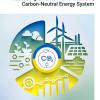Press Releases
Displaying Results 1 - 25 of 30
The war in Ukraine, which has caused immense suffering and resulted in the destruction of critical infrastructure, demands urgent action to rebuild the country and its energy system.
Today, Ukraine heavily depends on fossil fuels, which accounted for some 70% of its primary energy supply in
The United Nations has warned the world will fall short on the 1.5-degree C average increase in temperatures target without rapid and large-scale action to tackle greenhouse gas emissions from the energy intensive industries, which account for about 25% of total CO2 emissions globally and 66% of
Bold and sustained action must start now and maximize the use of all low- and zero-carbon technologies if we are to achieve carbon neutrality by 2050, warns the Roadmap to carbon neutrality for Europe, North America, and Central Asia released today by UNECE in the lead up to critical climate talks
In response to the request from Kazakhstan and Ukraine, UNECE has developed a study on improving energy efficiency and reducing emissions in their industrial sectors. The industrial sector in both countries is the largest energy consumer in the economy, representing 36 percent of final energy
Humanity is facing not one but three intertwined crises: the COVID-19 pandemic, climate change, and a lack of adequate and affordable housing. Each of these three emergencies has the potential to compound the multidimensional impacts of the others in health, social cohesion, environmental integrity
A UNECE-led partnership will improve energy efficiency of the global building supply chain and its products to deliver high performance buildings in seven UNECE member States: Armenia, Georgia, Kyrgyzstan, Republic of Moldova, Tajikistan, Ukraine, and Uzbekistan.
The launch of the project was
Micro-, small and medium enterprises (MSMEs) are among the worst hit financially by the COVID-19 pandemic. They represent over 90 percent of all companies in most countries in the UNECE region and are responsible for over half of GDP. Therefore, the economic recovery depends to a large extent on
Improving energy efficiency is one of the most cost-effective options for meeting growing energy demand, ensuring more rational use of energy, contributing to a better environment and to energy security in most countries, and securing economic well-being and improved quality of life.Today,
The global climate emergency cannot be addressed without the rapid transformation of the energy system. Accelerating the shift to renewable energy sources and dramatically improving energy efficiency will play a crucial role. On the day of the UN Climate Action Summit 2019, UNECE has
UNECE and Pittsburgh’s Green Building Alliance (GBA) signed an agreement launching Pittsburgh’s International Centre of Excellence on High Performance Buildings. Pittsburgh joins New York City’s Building Energy Exchange as the 2nd Centre of Excellence in a global network of sustainability
Country after country in Europe is racing to put more and more electric cars on the road as Europe strives to position itself as a world leader in electric vehicle innovation, digitization and decarbonization. If electric vehicles are going to feature so prominently in a connected and automated
Energy efficiency remains a challenge for countries in the UNECE region. Existing technologies can reduce energy consumption by 30 to 50 percent in buildings without significantly increasing investment costs. Moreover, improving the energy performance of a residential building goes hand-in-hand
Transforming the energy system will require creative and innovative shifts in policy and regulation. In many countries, the current political, regulatory, and industrial infrastructure is not yet ready for a deep and accelerated transformation of aging infrastructure. Countries are not prepared
Buildings are central to meeting the challenges of the United Nations’ 2030 Agenda for Sustainable Development and the 2016 Paris Climate Agreement. In the developed world, buildings consume more than 70 percent of the electrical power generated and 40 percent of primary energy. Additionally,
In developed countries, buildings consume over 70% of the electrical power generated and 40% of primary energy, and are responsible for 40% of combustion-related CO2 emissions. Developing countries will need to accommodate an estimated 2.4 billion new urban residents by 2050, bringing
Ministers and high-level officials from 85 countries sent a strong call to accelerate the transition towards sustainable energy systems in a statement adopted at a global conference in Astana, Kazakhstan on 11 June 2017.The Declaration contains seven voluntary actions, which outline ways to
Approximately 40% of global greenhouse gas emissions come from production, transportation, storage and use of coal. If measured over a period of 100 years, methane has a global warming potential 25 times higher than that of carbon dioxide (CO2). If uncaptured and released, emissions of this
Specifications for the application of the United Nations Framework Classification for Resources (UNFC) to bioenergy were released on 24 May for public comment until 23 July 2017.
Growing awareness and interest in renewable energy resources, including bioenergy, has highlighted a need to
China has been the world’s largest coal producer for the past three decades. It also is one of the largest emitters of coal mine methane, with 43% of the world’s total. In 2016, China produced 3.4 billion tonnes of coal. During the extraction, 13.5 billion cubic meters of methane released from the
What are the policy changes needed to overcome the political, legal, regulatory, institutional and technical barriers to the development of renewables in Ukraine? What needs to change for the private sector to invest in sustainable energy? How to stimulate investments for renewables to reach 11
What are the policy changes needed to overcome the political, legal, regulatory, institutional and technical barriers to the development of renewables in Georgia? What needs to change for the private sector to invest in renewable energy? How to stimulate investments to take advantage of Georgia’s
At the closing session of the Seventh International Forum on Energy for Sustainable Development, the delegates called on the governments and international organizations to take urgent steps for transformation of energy systems. There is a gap between current actions taken by governments and the
The coal industry, national governments, trade unions, and worker safety advocates are concerned with the frequency and severity of methane explosions in coal mines, especially in emerging economies. No mine, even in the most developed countries, is free from safety risks. Regardless of location
Specifications for the application of the United Nations Framework Classification for Fossil Energy and Mineral Reserves and Resources 2009 (UNFC) to geothermal energy resources were released today for public comment until 4 August 2016. Growing interest in renewable energy has highlighted a
The Fourth International Forum: Energy for Sustainable Development will be held in Tbilisi, Georgia on 17-19 September 2013. The Forum is organized jointly by the Government of Georgia, the United Nations Economic Commission for Europe (UNECE), the United Nations Economic and Social Commission for







